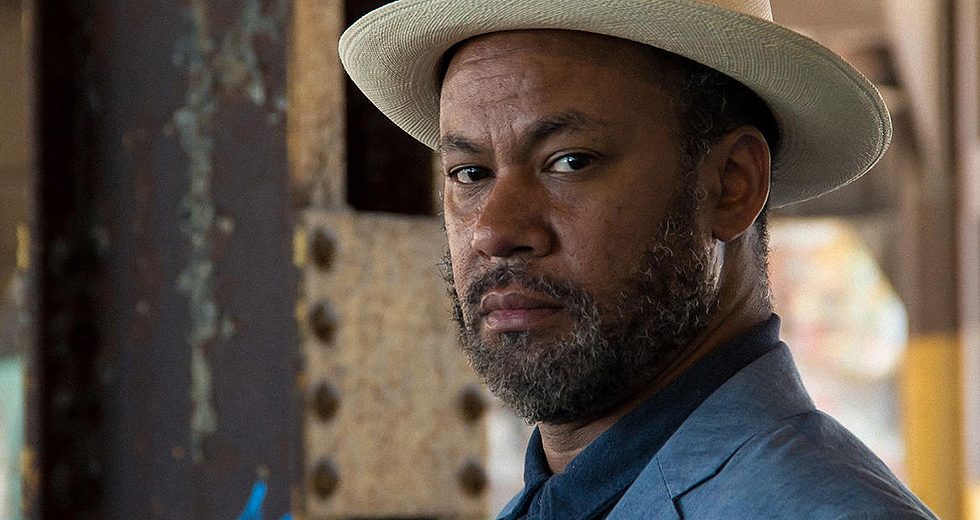
Some of the greatest music has come from some of the greatest pain. That’s the case with the album “Flesh & Bone” (428 Music, 2017), by jazz drummer-composer Mike Reed.
The music was inspired by an incident in 2009 when Reed and his quartet were on their way to Kraków, Poland, for a performance when their train stopped in the town of Přerov, in the Czech Republic, where the musicians — two of them white and two black — were thrown in the middle of a neo-Nazi rally involving about 500 people. A street battle broke out and while police ultimately helped to protect the musicians from harm, the experience remained with Reed. He spent the years since then constructing music through a series of live performances, editing sessions and a residency in New Orleans.
“It took me about a year to figure out I wanted to do it,” said Reed (who appears Feb. 9 on an SCP Jazz a double bill with Amir ElSaffar). “But it was difficult. It took me a while to figure out a way of doing it where I felt spiritually OK about it.”
Reed, based in Chicago (where he’s founding director of the Pitchfork Music Festival and programming chair of the Chicago Jazz Festival), needed time to relate his experience to the current day. He also didn’t want to be perceived as exploiting the incident for the sake of putting out new music. “I’ve really been interested in finding truthful portrayals of art,” he said. “And especially with jazz, there’s so much mythmaking that happens. I’m much more interested in the integrity of telling a story that is honest.”
Duke Ellington’s small group sessions served as a touchstone for “Flesh & Bone.” Reading Terry Teachout’s 2013 Ellington biography Duke: A Life of Duke Ellington (Avery), Reed grew interested in how Ellington wrote for specific musicians and was continually developing his compositions by keeping his band on the road.
For the track “Conversation Music,” Reed followed Ellington’s practice and used nuggets of improvisation recording during the tour to create a spark. After listening to the results, Reed started working on the arrangement to flesh out the rest. Chicago spoken-word artist Marvin Tate was brought in to broaden the sound and give Reed more elements to play with. As with his musicians, Reed recorded the improvised poetry during live performances and then cut up the words to renew their meaning within the direction of the music. Once he had what he needed, he brought Tate back into the studio to re-record the new flow of words.
“Marvin sounds like the voice of this band,” he said. “Like when the New York Art Quartet has Amiri Baraka — it resets people’s brains. It makes them think that they’re not just listening to improvisational music.”
Much of “Flesh & Bone” was recorded in New Orleans in an effort to physically remove his Chicago bandmates — Greg Ward (alto saxophone), Tim Haldeman (tenor saxophone), Jason Roebke (bass), Ben Lamar Gay (cornet) and Jason Stein (clarinet) — from their individual comfort zones and jolt them into a new dynamic that involved quick sessions lasting about four hours a day. “I wanted more commitment,” he said.
New Orleans is still hot in the fall, which meant the band members spent their daytime hours in the studio and then spread out into different pockets around town to play live gigs at night. Flipping their routine was essential to getting performances that felt spontaneous but focused.
“And there’s something to be said about the spirit of New Orleans,” Reed said. “Being there and letting the music dictate what we’re doing. It’s an important place for music with less ego than most other places. There’s star musicians on every street in that city. There’s amazing people who will never leave there. Unlike other places, it loves people from other places to come and be part of it.”
Chicago-based journalist Mark Guarino writes for the Guardian, Crain’s Chicago Business, the Washington Post, Salon, the Chicago Tribune, Reuters, Agence France-Press and other outlets.
Video interview with Mike Reed, by Todd Rosenberg: